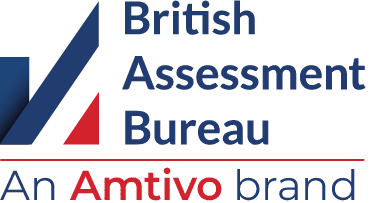ISO 14001 outlines how businesses can reduce their environmental footprint.
Our ISO 14001 Checklist is designed to guide you through setting up an Environmental Management System (EMS) and preparing for a certification audit. Use this guide for a comprehensive view of the standard’s requirements and to pinpoint any areas where your compliance may need improvement.
Enter your details below to download our ISO 14001 Checklist.
What’s Included in the ISO 14001 Checklist?
The ISO 14001 Checklist offers detailed steps for implementing an EMS according to the standard’s guidelines. It includes:
- Formulating your environmental policy and objectives
- Identifying relevant environmental factors and evaluating their impact
- Reviewing applicable environmental laws and other business requirements
- Establishing controls to manage environmental risks and achieve set objectives
- Conducting monitoring and assessment to prove the EMS’s effectiveness
- Carrying out an internal audit
- Preparing for the certification audit
Overview of ISO 14001
ISO 14001 is the international standard for environmental management. It provides a framework to help organisations mitigate their environmental impact while adhering to legal and regulatory standards.
The standard covers issues such as air quality, waste management, and resource consumption. It can also help organisations respond to environmental emergencies like chemical spills, fires, and biological hazards.
ISO 14001 promotes a systematic approach to environmental management. At its core is an EMS, which integrates policies, processes, and technological measures to identify and manage environmental risks.
The main aim of ISO 14001 is to assist organisations in establishing, implementing, maintaining, and improving an EMS to minimise their environmental impact and ensure regulatory compliance. This involves recognising and managing environmental risks and opportunities, implementing control measures, and continuously reviewing their effectiveness.
One significant advantage of ISO 14001 is its ability to help organisations lessen their environmental impact and foster sustainable practices. By adopting a structured approach to environmental management, organisations can identify and prioritise environmental risks and opportunities and implement controls to mitigate their impact.
Another key benefit is that ISO 14001 aids organisations in meeting environmental regulations and avoiding potential legal and financial repercussions. Many industries and regions have specific environmental laws that organisations must follow. Achieving ISO 14001 certification shows compliance with these regulations, reducing the risk of fines and legal issues.
ISO 14001 is relevant to organisations of all sizes and types, including public and private sector entities, non-profits, and government agencies. It applies to a range of activities with environmental impacts, from production and service delivery to transportation.
The standard requires a methodical approach to environmental management, involving the development of an environmental policy, identification of impacts, setting of objectives and targets, and ongoing monitoring and improvement. It also highlights the importance of leadership and employee involvement, requiring senior management to show commitment to environmental performance and ensure employees are trained and aware of their environmental responsibilities.
Why Pursue ISO 14001 Certification?
ISO 14001 certification demonstrates your organisation’s commitment to effective environmental management. In the current climate crisis, every action towards environmental protection is crucial for a sustainable future.
By adopting ISO 14001, organisations can effectively identify and address environmental risks and opportunities and implement measures to reduce their environmental impact.
Additional advantages of ISO 14001 certification include:
- Bolster your reputation: Show your clients and customers that you’re serious about environmental management.
- Attracting New Opportunities: Many companies prefer to work with ISO 14001-certified partners, opening up new business prospects.
- Ensuring Compliance: While ISO 14001 is voluntary, it can help meet environmental laws such as the Clean Air Act, Toxic Substances Control Act, and the National Environmental Policy Act.
- Reducing Costs: Preventing costly environmental incidents and potential fines ensures smoother operations and fewer disruptions.
Curious about balancing environmental management with high-quality products and services? Explore our ISO 9001 Checklist.
Achieving ISO 14001 Success With British Assessment Bureau
British Assessment Bureau is a leading provider of ISO certification services. Our certificates are accredited by UKAS and are recognised internationally.
We provide:
- Expert Support: Our experienced auditors offer specialised assistance.
- Cost-effective Solutions: We aim to build your trust with our reliable, value-for-money services.
- Personalised Service: We tailor our approach to meet your organisation’s specific needs.
- Transparent Pricing: We offer fixed prices with no hidden fees for certification services.
- Flexible Contracts: You can cancel your agreement up to four weeks before your scheduled assessment.
- High Satisfaction: 94% of our clients would recommend us based on their experiences.


